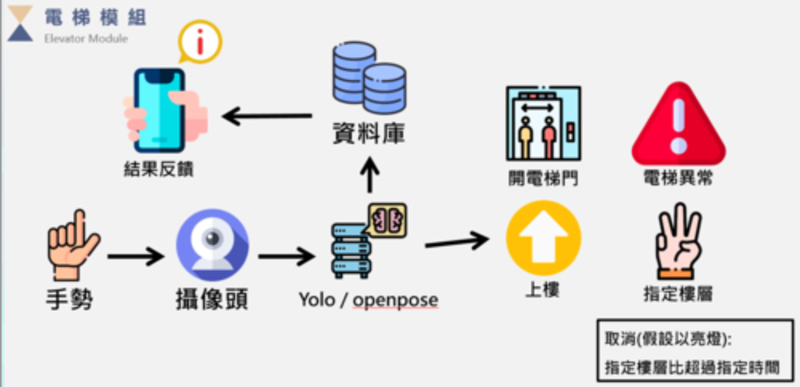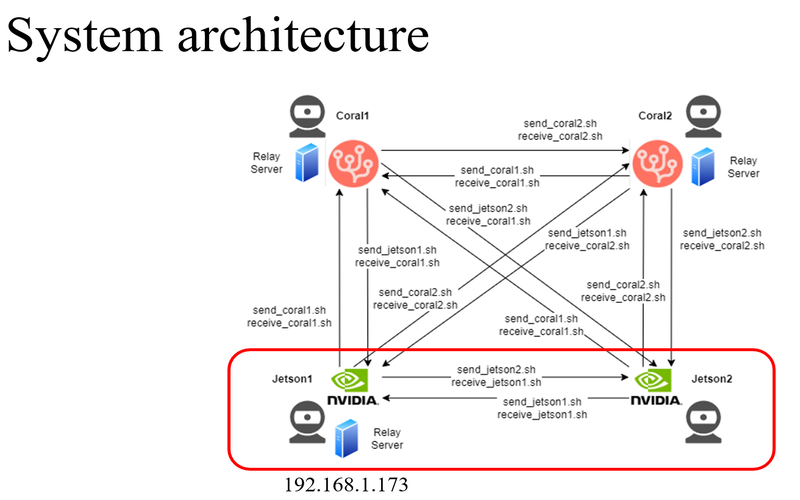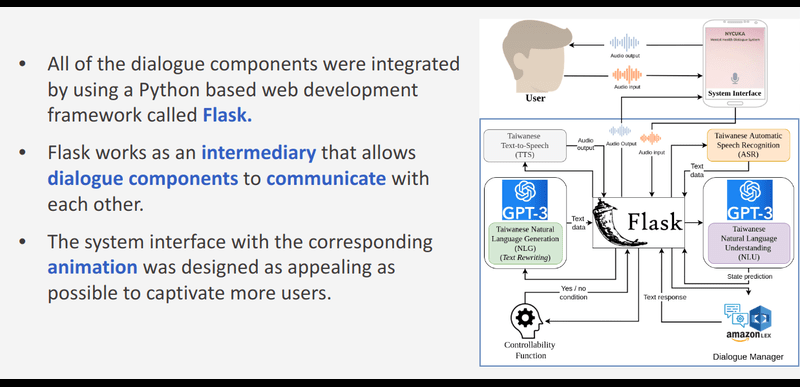Academic Sinica Summer Internship
Summer Internship, Academic Sinica, Institute of Information Science, 2020
Duration: Jul. 2020 - Sep. 2020 (3 months)
Summer Internship, Academic Sinica, Institute of Information Science, 2020
Duration: Jul. 2020 - Sep. 2020 (3 months)
Part-time, National Yang Ming Chiao Tung University, Department of Communication Engineering, 2023
Duration: Sep. 2023 - Jan. 2024 (5 months)
Part-time, National Yang Ming Chiao Tung University, Department of Communication Engineering, 2024
Duration: Feb. 2024 - Jun. 2024 (5 months)
Full-time, Ministry of the Interior, 2024
Duration: Sept. 2024 - March. 2025 (6 months)
Full-time, Taiwan Semiconductor Manufacturing Company, Artificial Intelligence Application and Platform Department, 2024
Duration: March. 2025 - Present
Published:
College graduation project
Published:
Graduated project in National Taipei Tech. 
Published:
Team project in National Yang-Ming Chiao-Tung University
Published:
Personal Side Project
Published:
Personal Side Project
Published:
Course homework
Published:
Master Thesis
Published in NCTU CS Course, 2022
Those are my notes for taking courses
Published in NCTU CS Course, 2023
Those are my notes for taking courses
Published in arXiv, 2023
Using RL to guide language model to generate higher likes comment
Download here
Published in NCTU CS Course, 2023
Those are my notes for taking courses
Published in IEEE Workshop on Automatic Speech Recognition and Understanding, 2023
Mental health chatbot for counselor in university
Download here
Published in NCTU CS Course, 2024
Those are my notes for taking courses
Published in Interspeech, 2024
Prompt tuning with large language model
Download here
Published in O-COCOSDA, 2024
Dataset for student counseling
Download here
Published in 2025 Asia Pacific Signal and Information Processing Association Annual Summit and Conference (APSIPA ASC), 2025
A knowledge-infused topic model for empathetic dialogue response
Download here
Published:
Paper presentation for the course called Computer Security in Chang Gung University
Published:
All of my slides which were presented while I was in Taipei Tech.
Published:
Paper presentation for the course called File and Storage system in National Taipei Tech.
Published:
Paper presentation and implemenation for the course called Machine Learning in National Taipei Tech.
Published:
In value-based reinforcement learning methods, function approximation errors are known to lead to overestimated value estimates and sub-optimal policies.
Published:
This paper provide the reader with the conceptual tools needed to get started on research on offline reinforcement learning algorithms:
reinforcement learning algorithms that utilize previously collected data, without additional online data collection.
Published:
Previous methods rely heavily on on-policy experience, limiting their sample efficiency.
They also lack mechanisms to reason about task uncertainty when adapting to new tasks, limiting their effectiveness in sparse reward problems.
This paper developing an off-policy meta-RL algorithm that disentangles task inference and control.
Published:
Motivated by BERT, they turn to the denoising auto-encoding idea to pretrain vision transformers, which has not been well studied by the vision community.
Published:
This paper present SECOND THOUGHTS, a new learning paradigm that enables language models (LMs) to re-align with human values.
Published:
This paper show a method to align language models with user intent on a wide range of tasks by fine-tuning with human feedback.
Published:
This paper proposes HyperPrompt, a novel architecture for prompt-based task-conditioning of self-attention in Transformers.
Published:
In this paper, they first introduce an open-source modular library RL4LMs, for optimizing language generators with RL.
Published:
In this paper, they introduce RL-based DM using a novel mixture of expert language model (MoE-LM) that consists of
Published:
This paper proposes a new algorithm for off-policy reinforcement learning that combines state-of-the-art deep Q-learning algorithms with a state-conditioned generative model for producing only previously seen actions.
Published:
In this paper, they present a comprehensive evaluation of parameter efficient learning methods (PERMs) for generation tasks in natural language processing.
Published:
This study proposes a fine-tuning recipe for retrieval-augmented generation (RAG) models that combine pre-trained parametric and non-parametric memory for language generation.
Published:
Most existing retrieval-augmented LMs employ a retrieve-and-generate setup that only retrieves information once based on the input.
Published:
This paper proposes LLaMA-Adapter, a lightweight adaption method to efficiently finetune LLaMA into an instruction-following model.
Published:
This paper proposes a parameter-efficient fine-tuning method called $\texttt{AdaMix}$, a general parameter-efficient fine-tuning (PEFT) techniques that tunes a mixture of adaptation modules.
Published:
Current SOTA for document retrieval solutions mainly follow an index-retrieve, where the index is hard to be directly optimized for the final retrieval target.
Published:
This paper uses a formal treatment of retrieval-based models to characterize their performance via a novel statistical perspective.
Published:
Nowadays, Generative Pre-trained Transformer models has not only breakthrough performance across complex language modelling tasks, but also by their extremely high computational and storage costs.
Published:
For language models, many methods using teacher forcing (TF) to train.
Published:
In this research, the authors address challenges in empathetic dialogue generation.
Published:
Large language models may generate content that is misaligned with the user’s expectations. For example, generating toxic words, repeated content, and undesired responses for users.
Published:
This paper utilizes a prompt pool to leverage task-specific knowledge and generate instance-specific prompts using attention mechanisms.
Published:
Empathetic dialogue generation task aims at generating empathetic responses, based on perceived emotions instead of definite annotated emotions.
Published:
To improve Reader′ s and Writer′ s for multi-dimensional emotion regression tasks with EMOBANK, this paper proposes an Adversarial Attention Network.
Published:
To reduce the limitation of the large language model, the existing work enhances pre-trained LLMs using grounded knowledge.